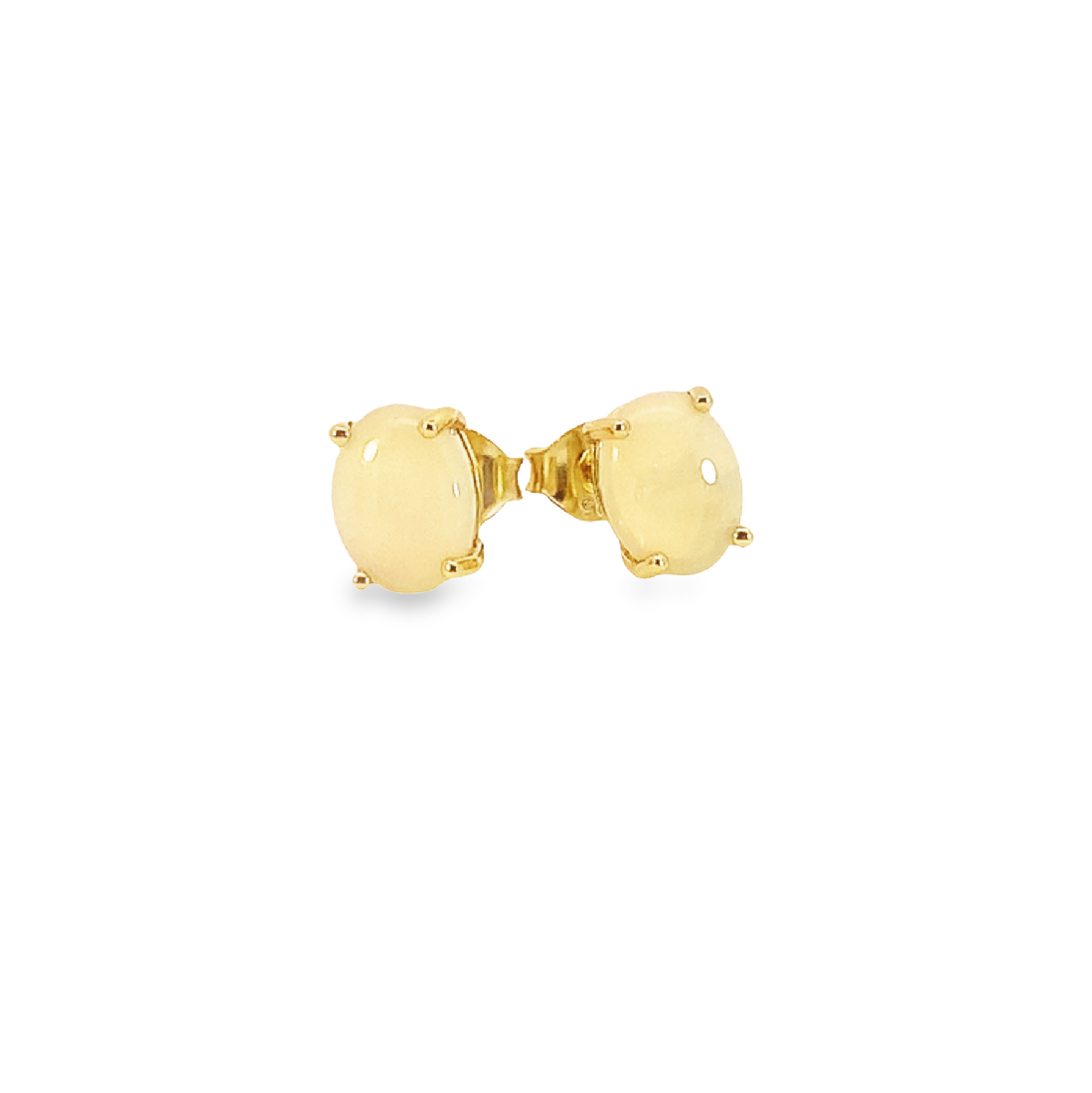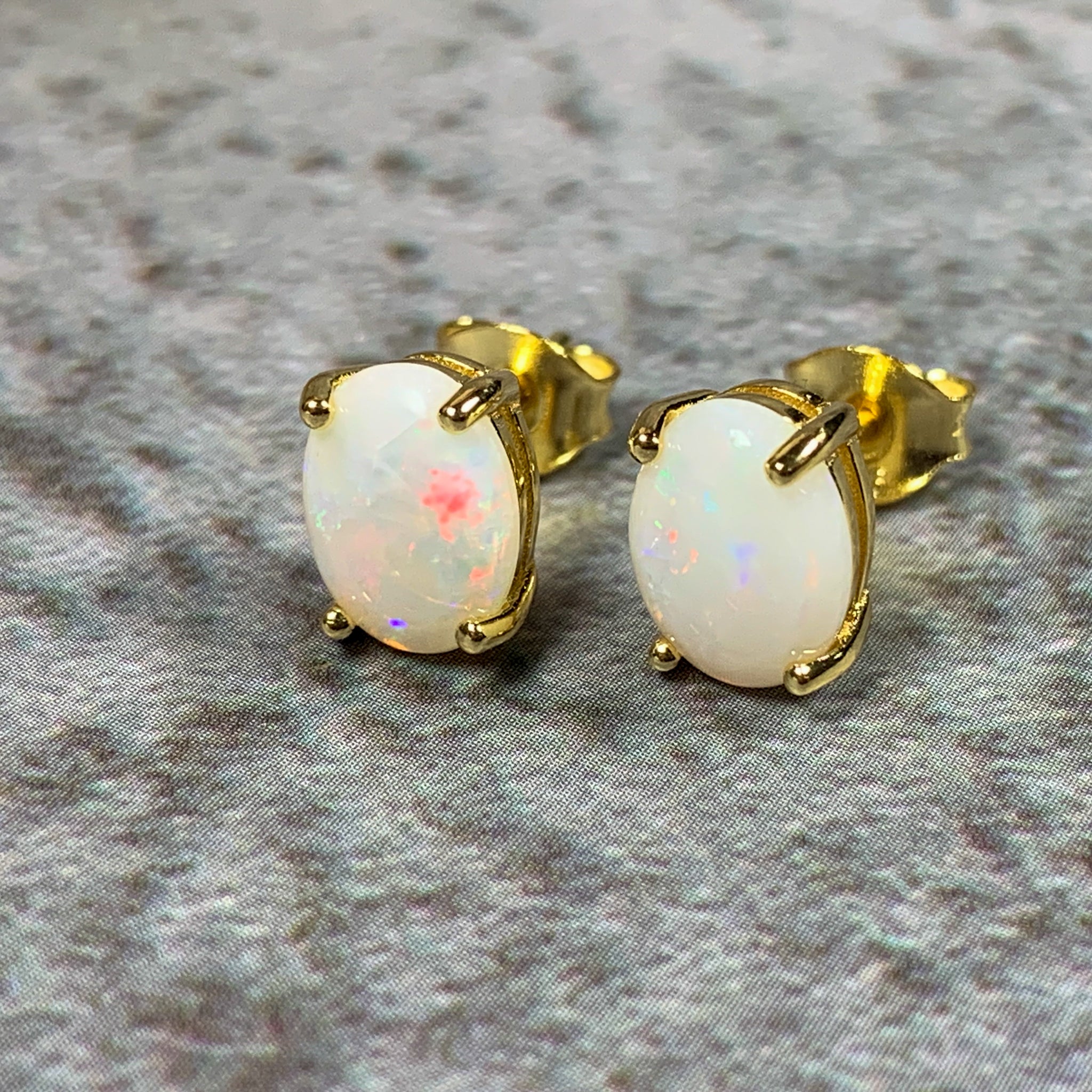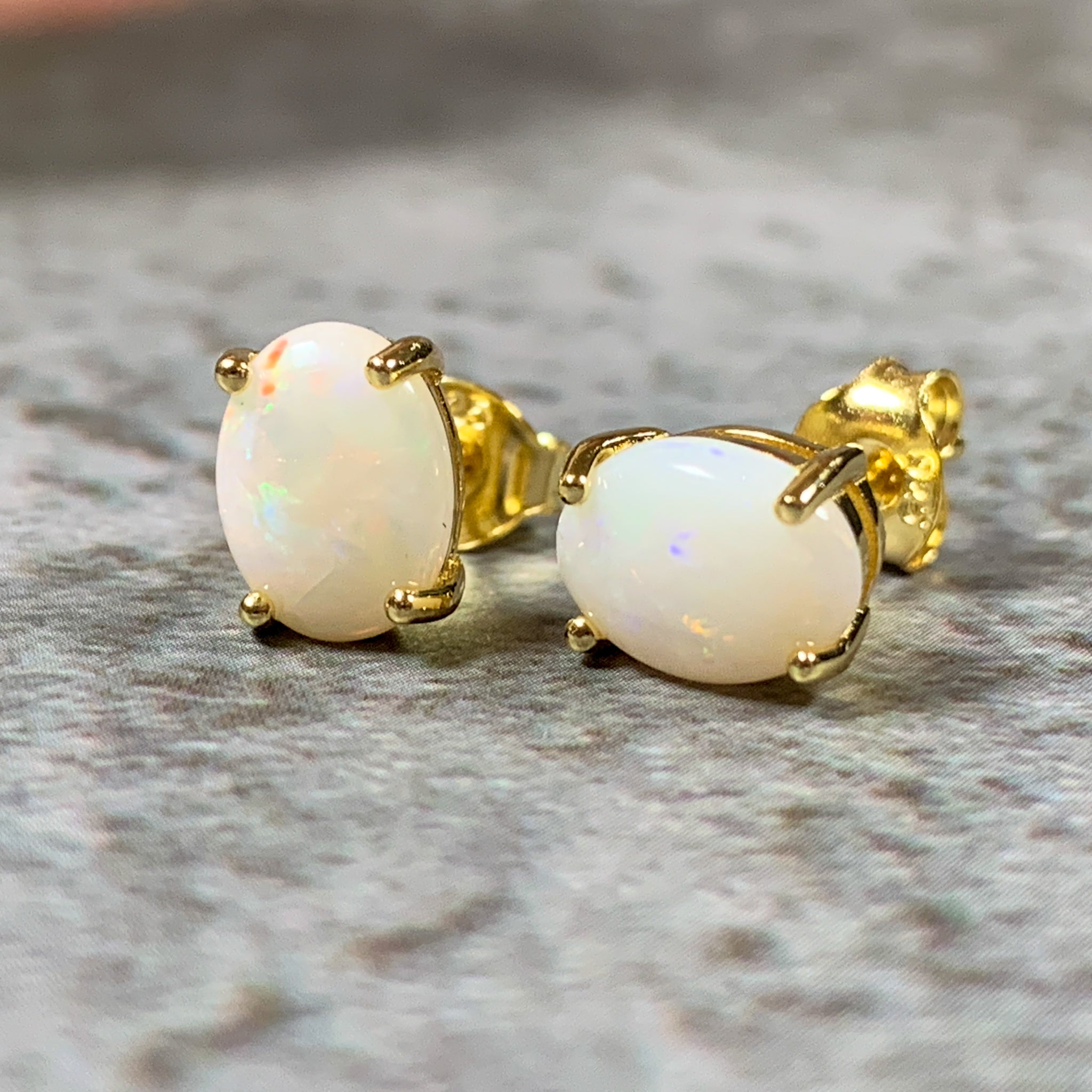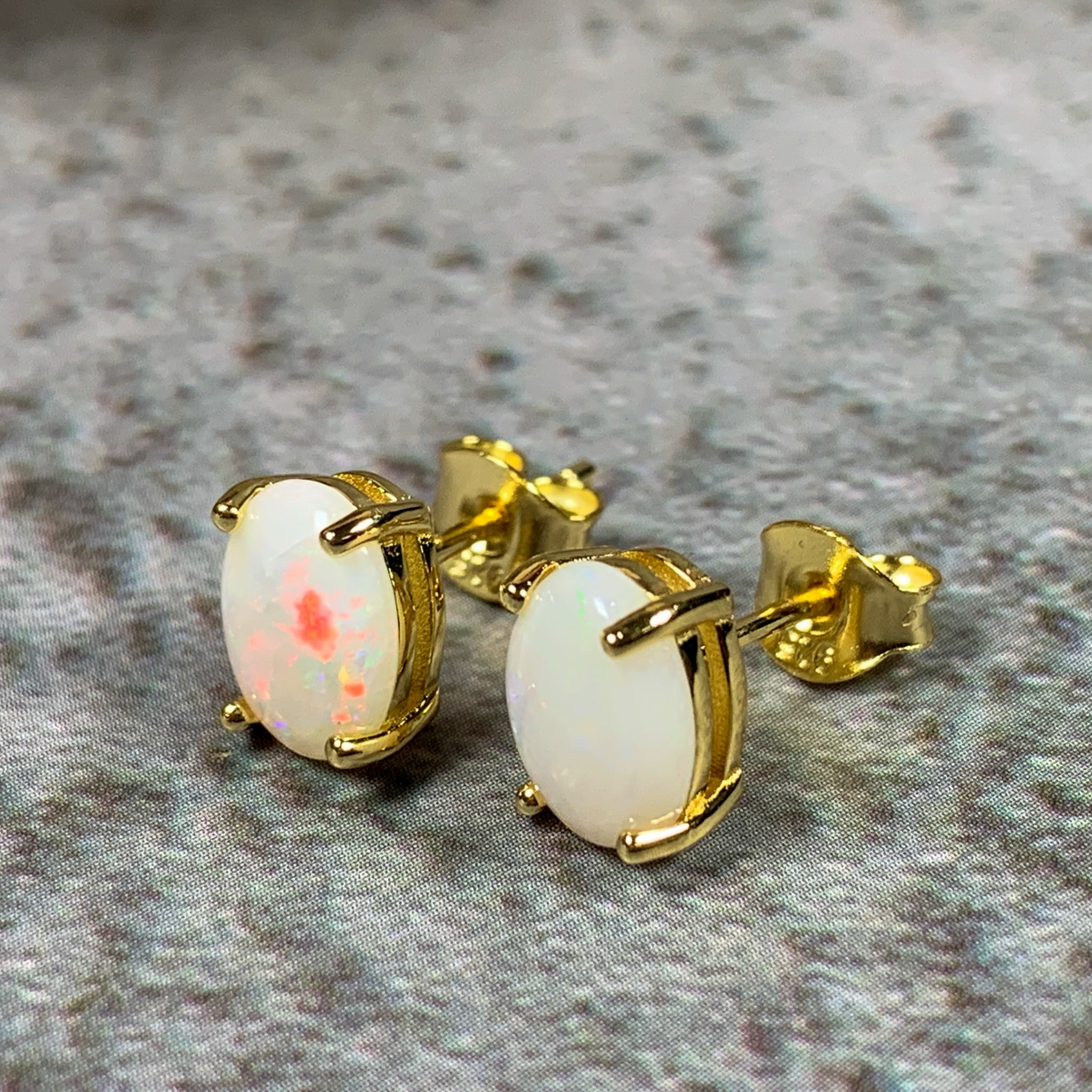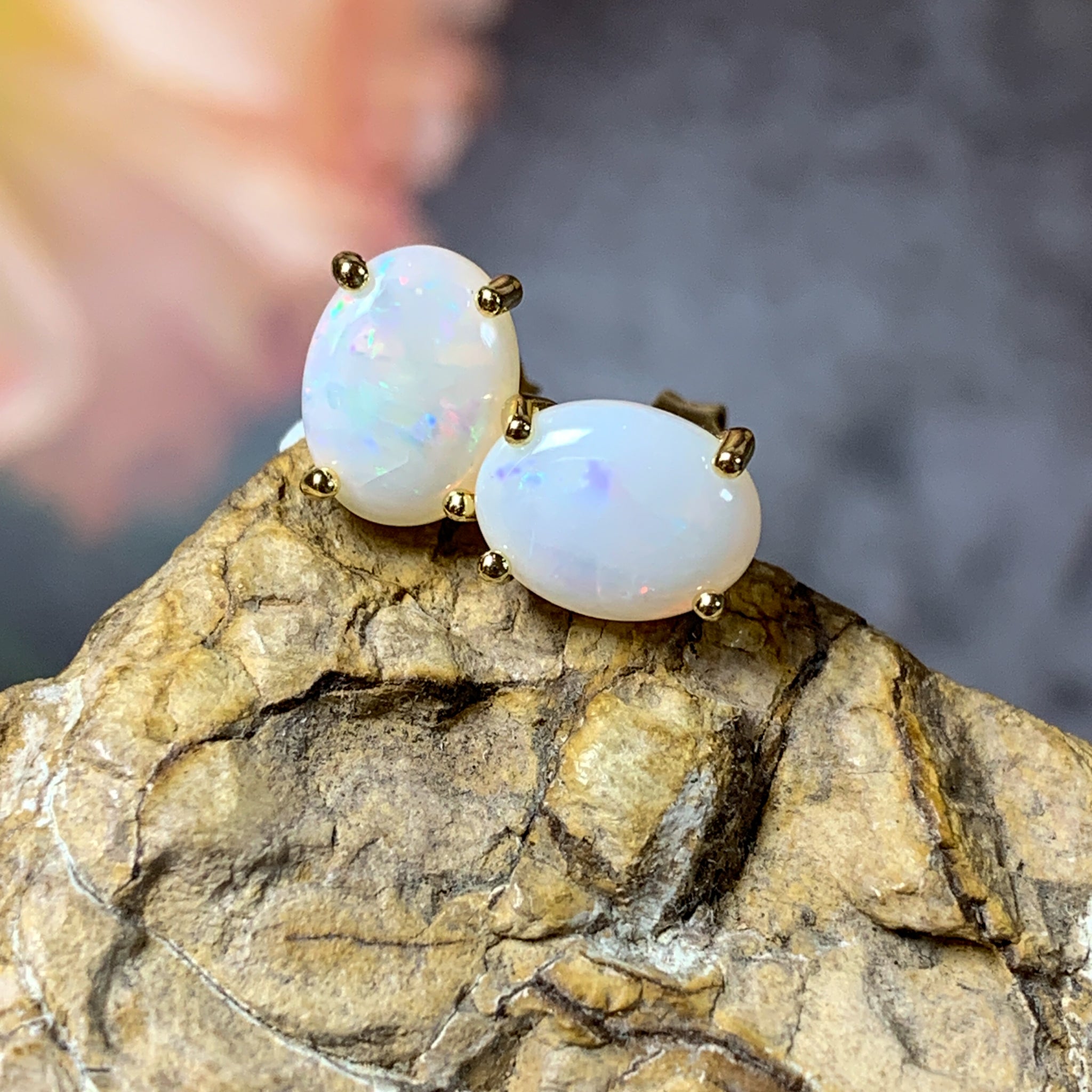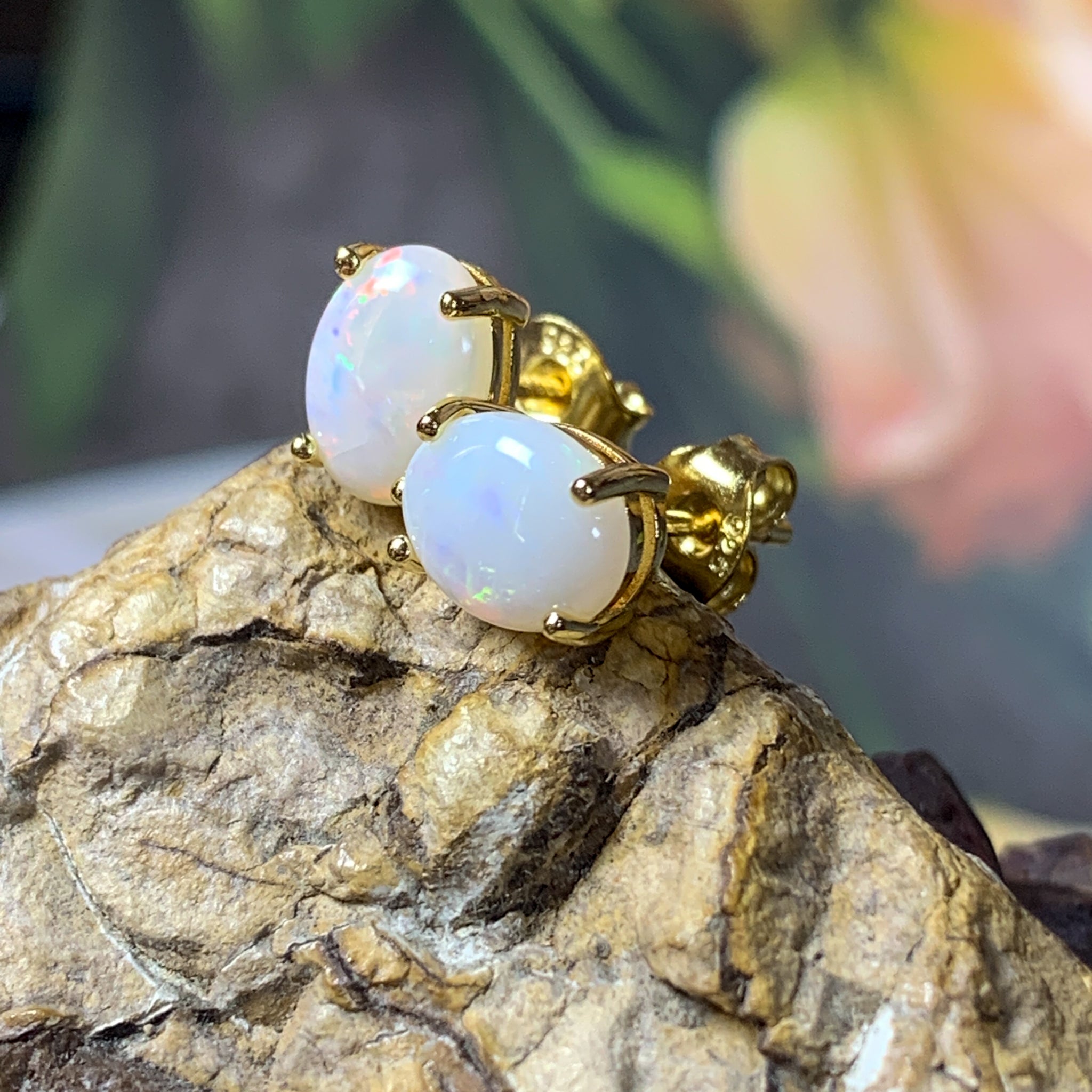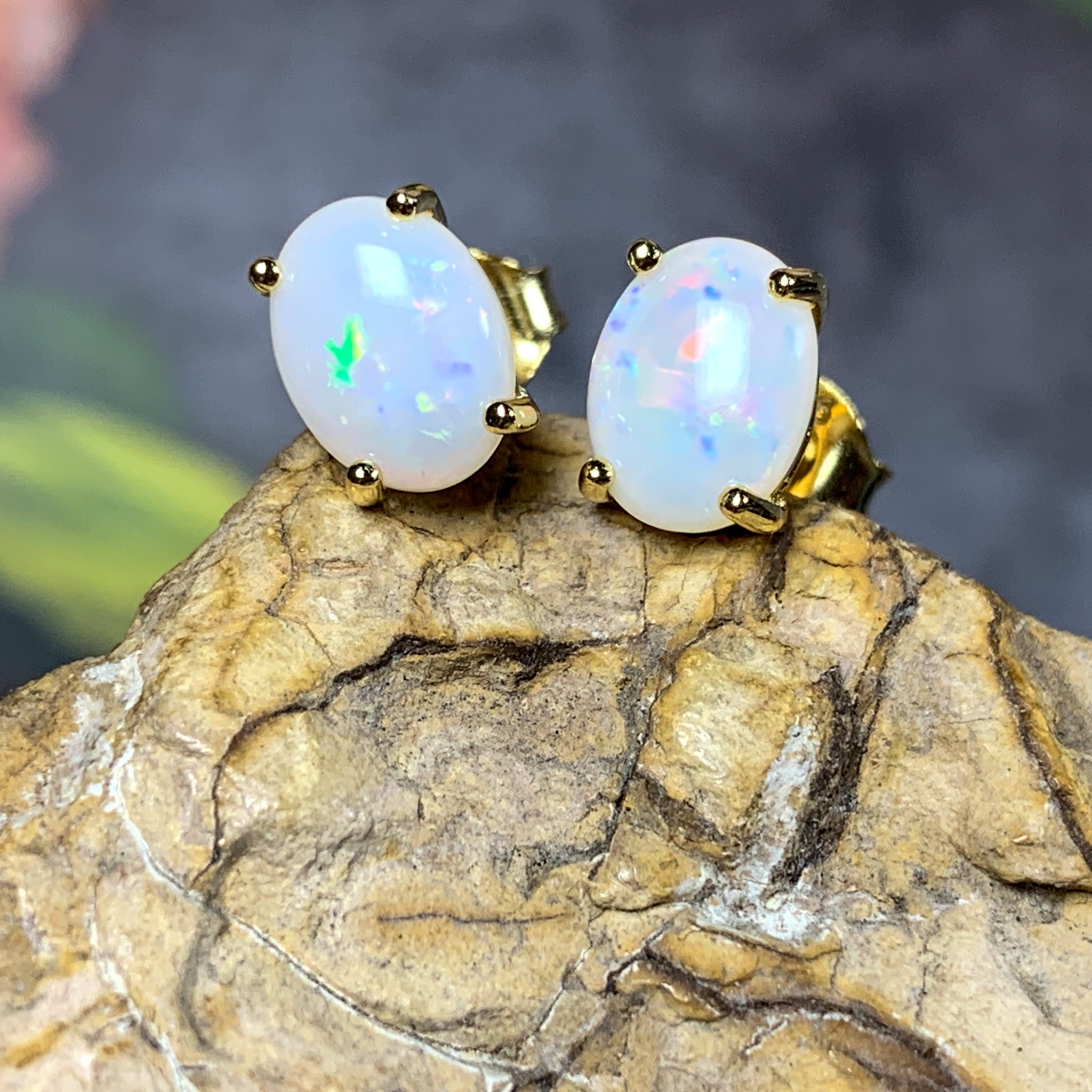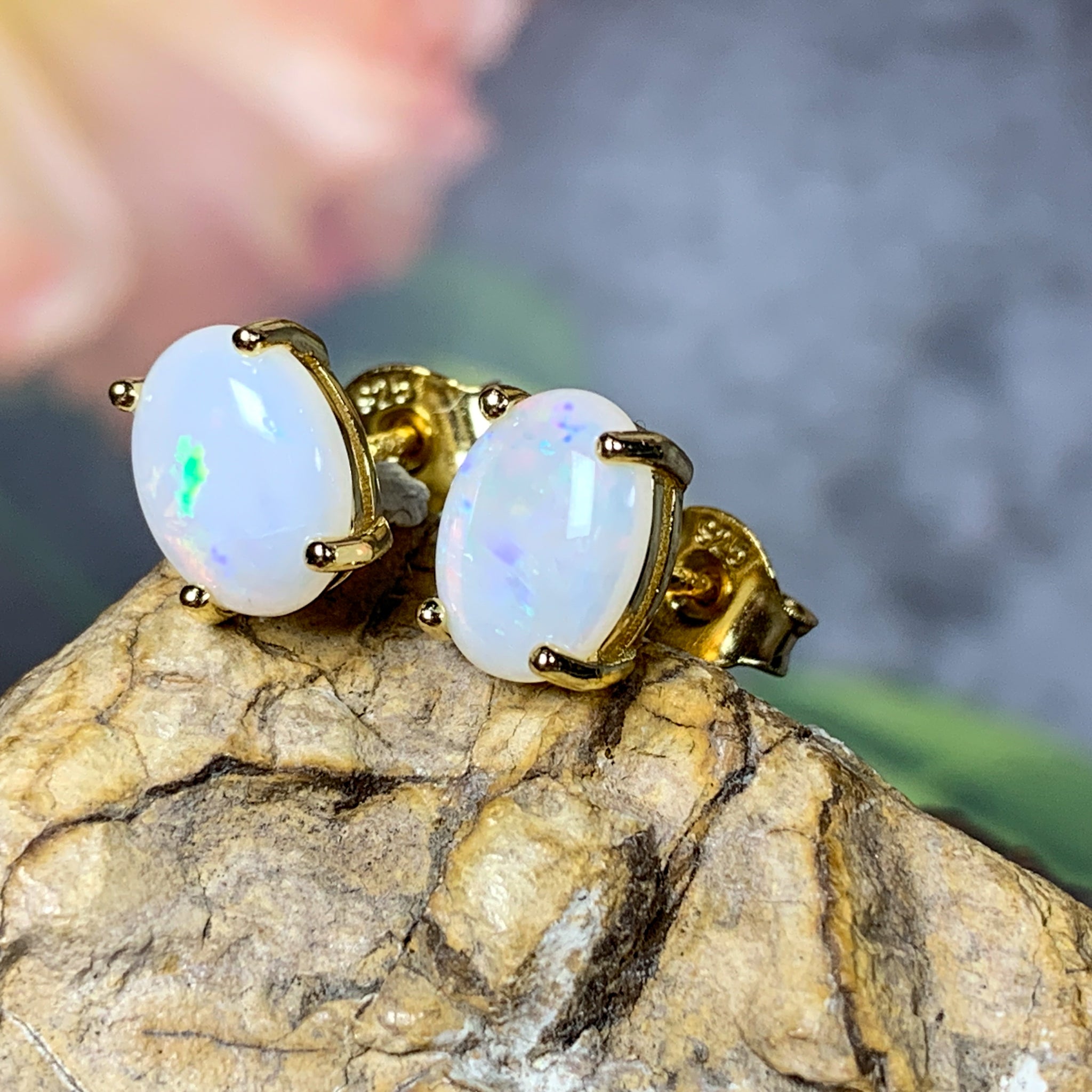Gold Plated Silver 8x6mm White Opal Earring studs
Couldn't load pickup availability
Description
Treat your ears to the elegant sparkle of these Gold Plated Silver 8x6mm White Opal studs! These chic earrings are perfect for adding some subtle shimmer to your wardrobe — opal on top of gold? You'll be feeling like a real golden goddess in no time! 💎
One pair of Gold plated Sterling Silver studs claw setPair of 8x6mm Australian White Opals
Approximate 1.6ct stone weight
Weight of pair = 1.4g
Our Guarantee
We want you to be 100% satisfied with the products you buy from us. If for ANY reason you are not satisfied with your purchase, we offer an iron-clad money back guarantee.
Buying online can be a daunting task, so we want you to realize that there is absolute ZERO risk in buying something and trying it out. If you don't like it, we'll make it right... It's our promise!

Shipping & Delivery
Delivery Time and Shipping Fee
DISPATCH
|
|
||
|
|
|
|
Can I receive jewellery in a gift box?
Your Jewellery will be packed in a box or a pouch.
If you would like us to wrap up the box or attach a card, please type your request and message in a "Comment" box on your Check-Out page.
Jewelry Care
Do not wash dishes, clothes or other items with it on. The harsh detergents in dish or laundry soaps can "dry" out the stone. Opals are composed 3%–20% of water, so they should not be allowed to freeze or dry out. Do not wear opals in any type of hot tub, Jacuzzi, swimming pool, sauna, steam room, bath tub or shower. Exposure to prolong submersion in any water with or without detergents or chemicals will destroy opals. Do not clean your opal jewellery with ultrasonic device. Do not garden with it on. Continuous contact with the soil can abrade the surface of your stone. Do not store and mix your Opal together with other jewellery- store them individually in seperate containers or pouches. -
Opals are softer gemstones, rating about 5.5-6.5 on the Mohs scale of hardness. Try to avoid wearing opal jewelry during activities where the stones could be knocked or damaged.
-
As opal jewelry is better suited to occasional rather than daily wear, ensure to remove your opal pieces after your special event and before carrying out chores, exercising, swimming, or any other activities that might expose the opal to harsh chemicals or extreme conditions.
-
It's also wise to put your opal jewelry on after you've finished applying makeup, lotion, perfume, or hairspray to avoid any potential damage from these substances.
Pearls are organic gemstones that are vulnerable to acid, alkaline and extremes of humidity. If pearls come into contact with substances such as vinegar, fruit juices or detergents, immediately wipe clean with a soft cloth. Never expose your pearl to hair sprays, cosmetics or perfumes. Pearls do no take well to the application of these products. We suggest you wear your pearl jewellery after applying make-up and styling hair. Don’t wear your pearls in the bath or in the shower and while playing sports as water can weaken the silk thread. It's also best to avoid direct sunlight or high temperatures such as in a sauna.
Don’t use vinegar, ammonia, any chlorine products or lemon juice or other acidic compound when your clean your pearl. Ultrasonic cleanser should never be used with pearl jewellery as it can damage the pearls. Always take care when mixing your pearls with other hard gemstones, gold or silver jewellery. We recommend to keep your pearls separately in silk or cotton bag.
rubbing silver with tissue paper or paper towels, it could cause scratching being in contact with perfume, soap or hairspray being exposed to salt water or chlorine in swimming pools being in contact with perspiration leaving silver unprotected in air, it may cause the silver to lose its shine quickly
When it comes to preserving the brilliance of your Rhdoium and gold plated pieces, meticulous attention is key. These items may not be fine quality jewellery, but with the right care, they can maintain their lustre for a significant period of time.
Always make your jewellery the final touch to your outfit and the first to be removed at the end of your day. This protects the plating from being subjected to substances that may cause early tarnishing, like makeup or perfume.
It's crucial to remove your jewellery before any activity involving water or chemicals. This includes hand washing, showering, swimming, and applying hand creams, perfumes, and makeup. These substances can tarnish and degrade the plating over time.
Understandably, your jewellery will experience wear and tear over time. However, you can prolong its life significantly by wearing it appropriately. Dress pieces such as gold plated and rhodium plated items should be worn on special occasions rather than daily. Frequent contact with abrasive surfaces or materials can cause the plating to wear off quickly.
Treat your jewellery with kindness. Sterling silver is relatively soft and can be easily damaged with harsh handling. Avoid bending earring posts, applying excess pressure or straining the delicate hinges on a locket.
Protect your jewellery from humidity and sunlight. Exposure to these conditions can speed up tarnishing. Store your jewellery in a pouch or a zip lock bag, particularly when storing for long periods.
Clean your jewellery with a special jewellery cleaning cloth designed for fashion or silver jewellery. Avoid any aggressive cleaning agents, such as dish soap or silver cleaners, which can damage the surface of your jewellery.

